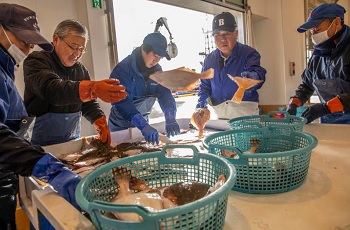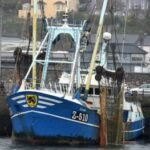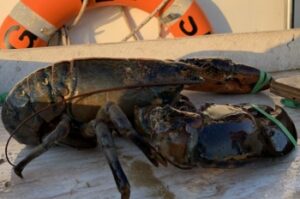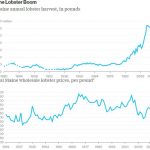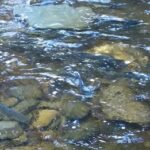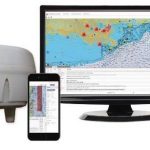Tag Archives: Parasites
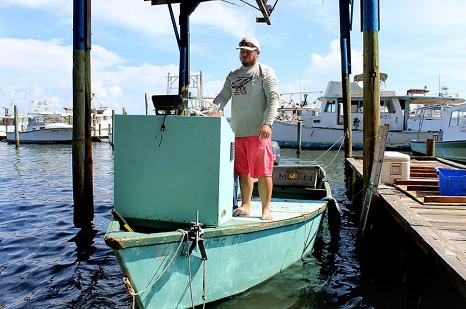
Opening a can of worms: Offshore fish farming in the Gulf of Mexico: Who benefits?
Velella Epsilon – the first fish farm in federal waters off the contiguous United States – would operate in the Gulf of Mexico, about 40 miles from Florida’s coast. Globe-shaped pens would hold fingerling almaco jack, a member of the amberjack genus, that would grow into 4-pound market fish within a year. The White House appears eager to open federal waters to aquaculture. With Executive Order 13921, President Donald Trump on May 7 ordered NOAA to winnow down regulations for both aquaculture and wild-caught fish.,, Ocean aquaculture is not without its environmental costs, such as escaped fish, parasites, and “fish sewage.” To James Bois, a commercial fisherman based here in Cortez, it’s unclear how a massive fish farm operation off the coast of Cortez will change his life. >click to read< 14:52
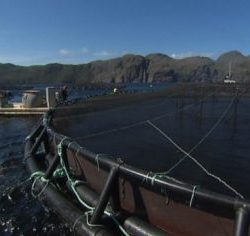
Audit finds Canada’s federal government fumbling on fish farms
The federal government is fumbling the management of fish farms, while failing to enforce rules and manage risks of infectious diseases, parasites, drugs and pesticides that cause damage to wild fish, says a scathing audit released on Tuesday. The audit was one of three reports tabled on Tuesday in the House of Commons by Julie Gelfand, Canada’s commissioner of the environment and sustainable development. It sounds alarms about Canada’s fish farms on Canada’s coasts while questioning the effectiveness of about $30 million in annual government spending to oversee the $1-billion industry. >click to read<11:47
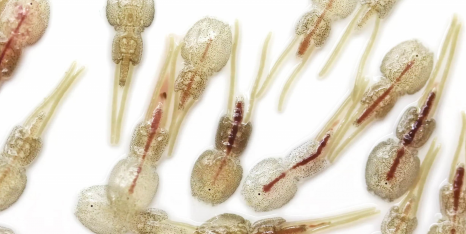
Why ‘normal’ salmon don’t get as many parasites
New research reveals the inherent ability of salmon to avoid infection through their first line of defense—behavior. In the rapidly growing fish-farming industry, parasite outbreaks cause production inefficiencies, poor welfare for billions of fish, and negative consequences for wild populations when diseases spread. “Parasite outbreaks in wild fish have been induced by farmed fish in major farming systems, such as sea lice infestations on wild salmon in Europe and North America,” says Tim Dempster, associate professor in the School of BioSciences at the University of Melbourne. click here to read the story 15:25
The US Fishing Industry Contributes Nearly $90 Billion To The Economy

The Hamilton Project notes that “current policies do not capitalize on the full economic potential of U.S. fisheries, ( World Bank and EDF/Pew Nature Con have figured out how to skim the cream) nor do they guarantee their ecological sustainability.” (Because we know privatization saves not one fish!) Read more from the Vultures at the Hamilton Project, Making money the old fashioned way. Screwing people out of it! Read it here 19:54
Some Dangerous People will Assemble on September 10, 2014, and you should be aware of this.
 Casting the Net: A More Efficient Approach to U.S. Fisheries Management – The Brookings Institution – Former U.S. Treasury Secretary Robert E. Rubin will open the forum. discussion paper by economist Christopher Costello of the University of California, Santa Barbara, joined by Lee Crockett, Director of U.S. Oceans at the Pew Charitable Trusts; Amanda Leland, Vice President of Oceans at the Environmental Defense Fund; John Pappalardo, Executive Director of the Cape Cod Commercial Fisherman’s Alliance; and Captain Steve Tomeny of Steve Tomeny Charters. Read this. Read the rest here 20:22
Casting the Net: A More Efficient Approach to U.S. Fisheries Management – The Brookings Institution – Former U.S. Treasury Secretary Robert E. Rubin will open the forum. discussion paper by economist Christopher Costello of the University of California, Santa Barbara, joined by Lee Crockett, Director of U.S. Oceans at the Pew Charitable Trusts; Amanda Leland, Vice President of Oceans at the Environmental Defense Fund; John Pappalardo, Executive Director of the Cape Cod Commercial Fisherman’s Alliance; and Captain Steve Tomeny of Steve Tomeny Charters. Read this. Read the rest here 20:22

































